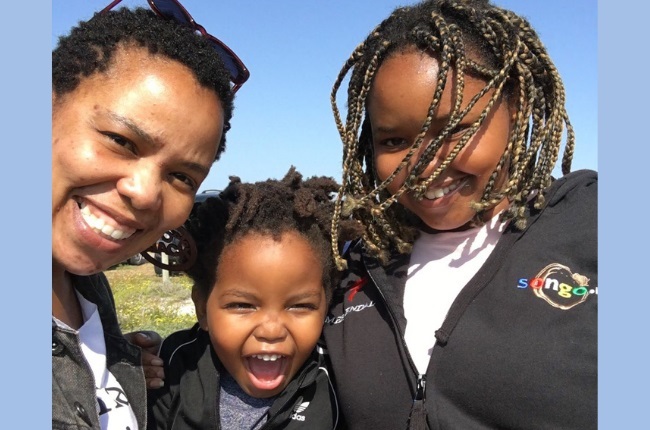
"2020 and 2021 have been the most challenging years I ever thought I would come across," Asanda Dubula says.
As a single mom raising a teen and a toddler, she has good reason to feel overwhelmed by the events of the last 20 months.
Dubula, an essential worker who turned 40 in 2020, was on standby or in the office often as her services were required.
"As a mom, I had to make arrangements as my daily schedule was inconvenienced in terms of my children as [my] 4-year-old Zammy still needed someone to look after him while I was at work," she says.
This is one article in a series on the impact the Covid-19 pandemic has had on ordinary South African families. Find the full series here: Behind the Mask
Also see | Why relationship-building skills will 'better prepare young people for the future'
'Normally, we would spend just Saturday on a beach'
"My 16-year-old daughter Abulele is not social, but does love being with close friends and to go out a little bit, while Zammy is very social and loves interaction with other kids," she shares.
"Normally, we would spend just a Saturday on a beach or drive or hike or explore natural Cape Town parks."
To keep the kids entertained while locked up in their Cape Town home, Dubula downloaded and found educational programmes on TV and on their mobile devices.
"I was challenged to multitask, as I had to let my childminder go, and Abulele was not at home when lockdown happened. Zammy was the only child at home through Level 5, and he needed my attention. His father failed to honour our parental plan, and unfortunately, it affected Zammy too.
"We could not see family and friends, and the only means of communication we had was social media. Abulele really missed her friends and school, and with Zammy I could sense he was frustrated by the environmental change."
Educational psychologist Jamie Brassell says children with certain personality types and temperaments seem to be experiencing more challenges with isolation.
"It was incredibly difficult for extroverted children to be away from friends for such a long period of time," she says. She says parents of extroverted children with high energy levels may have found that their children have become increasingly demotivated to do schoolwork, or to do anything else other than playing online games as an attempt to maintain social connections.
According to her, it was interesting that many children who previously disliked school were absolutely thrilled to return after schools reopened.
Also see | Stress management: Six lessons parents can take from pandemic homeschooling
'She did not do well'
Dubula says she has developed a mechanism to work with what she can control. She also used the time she had to work on her craft as an artist, and painted and wrote music when she could.
One of the more challenging things Dubula has come across is the school timetable, which is often changing. "This was difficult for me, as I couldn't plan ahead. Sometimes there would be a Covid-19 case at school, and that would impact how things should be at home," she explains.
"Abulele became a 'room person'," she says, "and since most of the places were closed and she relied on close friends just for sleepovers, she did not do well."
The teen has also struggled at school because she has a chronic illness, which means she relies heavily on WhatsApp for schoolwork.
"This was a drastic change which we never expected to happen," Dubula says, adding that this has led to her daughter repeating Grade 10.
Shaheda Omar, clinical director at The Teddy Bear Clinic for Abused Children, says this is not an uncommon occurrence over the course of the pandemic, as teens flourish with their peers. Omar says the more isolated they are, the more their well-being and mental and physical health are affected.
She says teens may become detached or disconnected, as the things they enjoyed before lockdown has been taken away from them involuntarily.
This rude interruption to their lives, especially to teens who are social animals who need engagement, means there is no one to recognise or validate them. Teens need peers for approval and affection in their network and social circle, and this lack affects their whole sense of being, Omar says.
'The government could have done better'
"I still feel strongly that the government could have done better to introduce new ways of doing things like online learning, as my life as a single parent revolves around my work and my children," she says.
Nonetheless, Dubula isn't opposed to the lockdown and thinks more people would have died without these measures, and the devastation would have been far worse. She says she, too, has lost loved ones to the virus.
Read the full series here: Behind the Mask
Chatback:
Share your stories and questions with us via email at chatback@parent24.com. Anonymous contributions are welcome.
Don't miss a story!
For a weekly wrap of our latest parenting news and advice, sign up to our free Parent24 newsletter.




 Publications
Publications
 Partners
Partners











